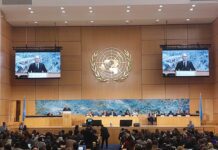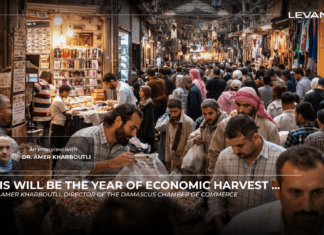
A recent report by the Observatory of Political and Economic Networks (OPEN) has unveiled significant issues within United Nations (UN) humanitarian operations in Syria, pointing to widespread abuses and links to the Assad regime. The report, titled UN Humanitarian Operations in Syria 2021–2022: Challenges and Policy Solutions, was authored by Karam Shaar, Noha Alkamcha, Mohamad Orwani, and Dima Muhammad.
The study, conducted in partnership with the Syrian Legal Development Program (SLDP), scrutinizes the procurement practices of the UN in Syria from 2021 to 2022, following a similar methodology to a previous analysis of the 2019–2020 period. It identifies a troubling trend of increasing risk in UN procurements, with a significant portion linked to individuals and entities involved in human rights abuses and ties to the Assad regime.
The report found that 52% of UN procurements in Syria were categorized as “Very High Risk” or “High Risk” in 2021–2022, up from 47% in 2019–2020. This rise in risk is attributed to the deepening ties between suppliers and the Assad regime.
There was a notable increase in procurement from suppliers owned by sanctioned individuals, rising from 23% in 2019–2020 to 31% in 2021–2022. These suppliers include regime cronies such as Samir Hassan, Samer Foz, and Bilal al-Naal.
The report highlights the UN’s lack of transparency, with Syria having the highest share of procurements from “hidden suppliers” among major humanitarian responses. This opacity has been linked to increased accusations of violations, particularly against the World Health Organization (WHO).
While public institutions accounted for a small share of overall procurements, the report cautions against contracting with Syrian state entities due to rampant corruption. Syria ranked 177th out of 180 countries regarding corruption perceptions in 2023.
A leaked dataset from the Syrian Ministry of Social Affairs and Employment revealed significant funding to the Syria Trust for Development (STD), led by Asma al-Assad, the wife of regime leader Bashar al-Assad. This organization, along with others funded by the UN, has shown strong support for the Assad regime, which has been responsible for war crimes, crimes against humanity, and severe human rights violations.
The study indicates that while in-country procurements fell, the funds increasingly went to entities with ties to the regime. This shift suggests that lower-risk suppliers are being edged out by the predatory practices of the Assad regime.
The report outlines several recommendations for donor states and the UN to address these issues:
Donor states should demand greater compliance with UN standards and procedures, require transparency in financial reports and identities of suppliers, avoid funding new UN initiatives without significant progress in addressing highlighted issues, and advocate for cross-border aid deliveries into northwest Syria.
The United Nations must enhance compliance with human rights standards in procurement processes, avoid partnering with state institutions where possible, and increase transparency and accountability in procurement and partnership processes while strengthening the humanitarian response in northwest Syria independently from Damascus operations.
The findings underscore the complex and often compromised nature of humanitarian aid in conflict zones like Syria, where the regime’s influence permeates various facets of aid distribution, exacerbating the suffering of the civilian population. The report calls for urgent reforms to ensure that humanitarian assistance reaches those in need without enabling or reinforcing oppressive, exploitative, and abusive structures.








